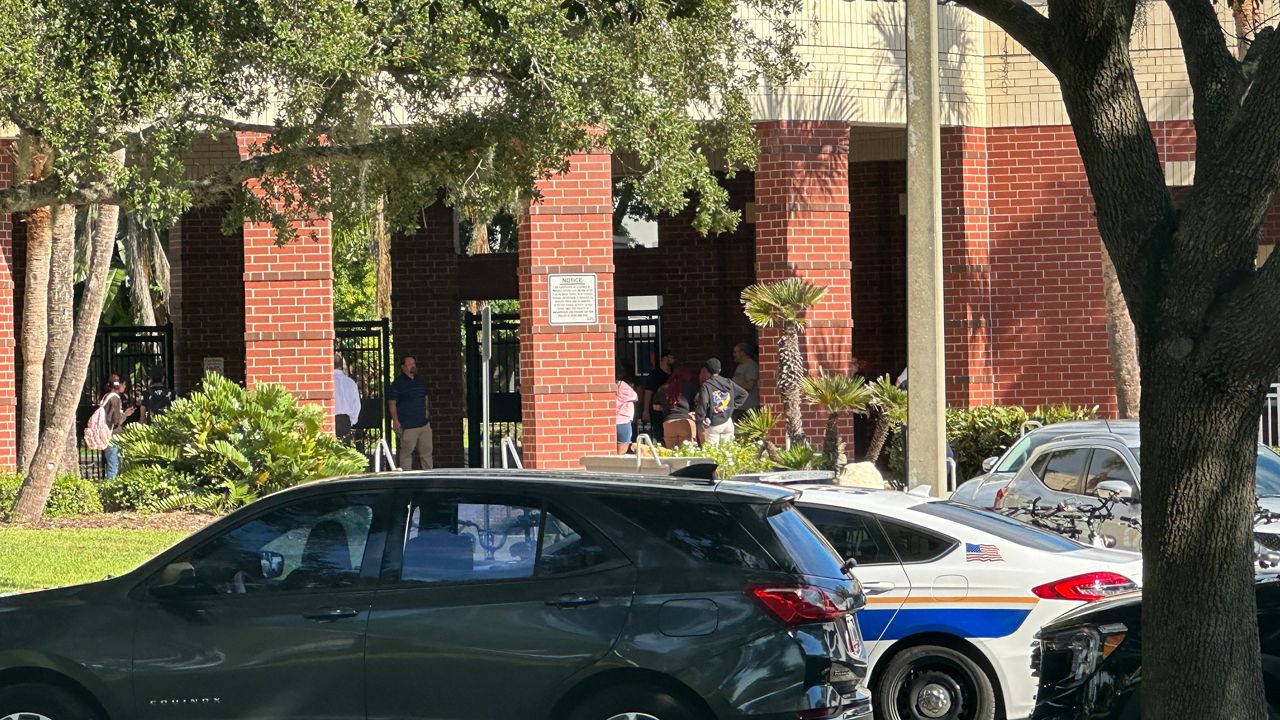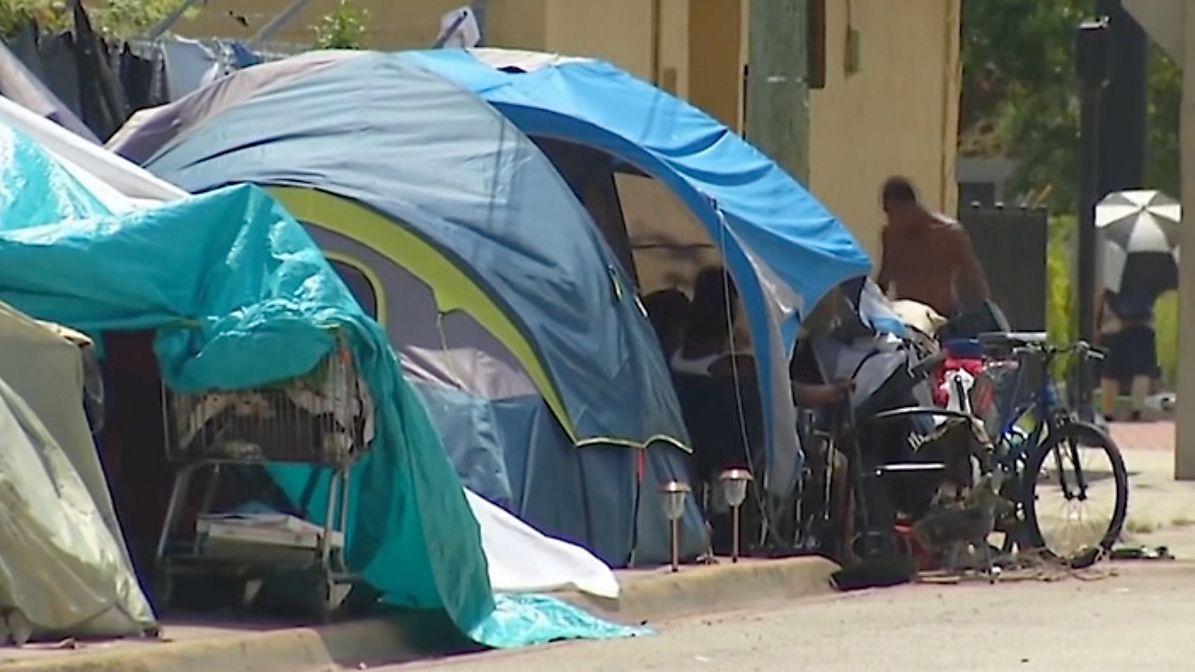ORLANDO, Fla. — A trash heap along Interstate 4 was left untouched for weeks and just steps away from a family neighborhood.
- Trash remained mostly untouched under I-4 WB
- Trash heaps breed rats, flies and diseases, says health official
- Get more Watchdog coverage here
From empty food containers to piles of clothing, the trash heap under the I-4 westbound Princeton Street exit is in Mary Ballard's words "just awful."
It is a far cry from her College Park home one block away, where neighbors sit in their front lawns and catch up on their daily lives.
Donna Vandyke, Mary Ballard's daughter, lives about a block away. She says she has become so concerned about the trash pile that she will not let her son walk along that stretch of Princeton Street anymore.
Donna Vandyke explains, "I've got a fear that something's going to jump out and bite me. You don't know what's in there! And God forbid a rat jumps out and bites him or even he gets cut by something in there. You never know what's there. And that's my fear. My fear is the unknown. And I'm not going to let my child be exposed to that."
Our Watchdog Team began filming the trash heap on January 10 and filmed it for the next four weeks to see if a crew could clean it up.
The trash remained mostly untouched.
Spectrum News 13 called a spokesperson for I-4 Ultimate Project, the contractor responsible for cleaning and maintaining the I-4 construction zones, and was told they would look into the matter.
Spectrum News 13 also took its concerns to the Florida Department of Health and was told the Environmental Health division would investigate under the state statute "nuisances injurious to health" — meaning conditions that could lead to human illness or injury.
David Overfield is the director of Environmental Health and Epidemiology for Florida Department of Health in Orange County. He says trash left outside and untouched does rise to the level of "nuisances injurious to health."
Overfield says trash is an ideal environment for rodents and other creatures like flies, which breed often, meaning more carriers for infectious disease and other illnesses.
"The longer that trash sits, the more of those cycles, the higher the chance to spreading illness or disease," he says.
While nobody from Florida Department of Transportation or the I-4 Ultimate Project would go on camera, Spectrum News 13 did receive a statement from an FDOT spokesman saying:
"FDOT and the contractor work daily to ensure the I-4 Ultimate corridor is safe. In this specific case, the I-4 contractor is aware of the issue and did a thorough clean up."
Spectrum News 13 checked back and the trash is now gone, but not until a week after the station alerted them.
The FDOT spokesman went on to say that "further effort and coordination is ongoing … and the department is monitoring the situation as well."
If you see anything concerning, you can always contact:
I-4 Ultimate Project:
- Contact site here
- 1-844-ULT INFO (844-858-4636)
The Orange County Environmental Health Department:
- 407-858-1497









